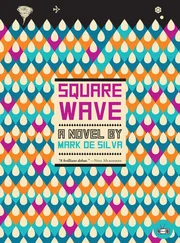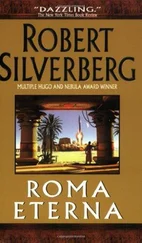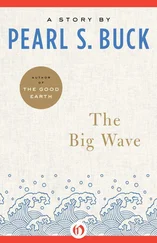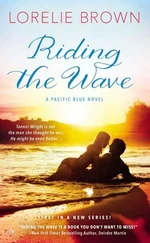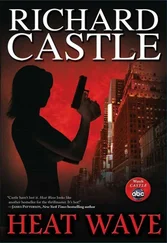His details caught my fancy — so many yarns, tender and funny. My stories of my childhood seemed meager in comparison. I told him about my first trip to the cinema when I was five, to see My Fair Lady . My parents had to bring me home halfway because I began howling at the steaming hot bath that was being run for Eliza. We had only cold showers then in Sri Lanka, and I thought she was about to be boiled alive. This upset me more than the stilt walker who came down our street once a week in the afternoons, when my mother was having a nap and I was playing outside.
Despite that early nervous talk about rain, Steve had a self-belief that ran deep, I soon learned. He was unruffled, at ease with himself. When we had exams or essays to write, he had remarkable focus. He worked intently, nimble and efficient in identifying what was important from those absurdly vast reading lists. Always precise, those notes he scribbled with a pencil on revision cards in the hush of the library’s Manuscript Room.
Steve came to Cambridge from a secondary school that was academically dismal. When they were sixteen, a couple of his peers would spell Hitler as “Itla.” The street outside was lined with police riot vans at the end of the school day. Mobs of students who played truant turned up at the gates to fight others who’d spent the day wrecking classrooms. Apart from our friend Lester, who’d been to that same school, no one went to university, some went to prison. On hearing that Steve was off to Cambridge, one of the veteran delinquents assumed it was just another borstal and said, “Which one’s that then? What’s the grub like there?”
Steve was always relaxed about the bedlam in his secondary school. It even worked to his advantage, he told me. For he had the undivided attention of his teachers, a rare student they could actually teach, and he thrived. And the troublemakers let him. He had respect for being on the basketball team. It also pleased a few of his white peers that “one of them” was excelling. “That’ll show the Pakis,” they’d say, perceiving that it was mainly Asians who achieved anything academically in that school. This was the late 1970s and early 1980s, when notions of white supremacy were widespread among groups of youth in deprived neighborhoods. The distress he felt about the prejudice and hatred around him, Steve poured into his troubled teenage poems about the corrupt urban soul.
Some Sunday afternoons in Cambridge, the two of us would go study in a meadow or an orchard, a bottle of Southern Comfort in hand. The English countryside had no allure for me as yet, and I would complain that it was boring, no wild elephants charging at us. Steve declared that, unlike me, he could find charm in any landscape. He described how he’d luxuriate in the glow of early sunlight striking red brick on his council estate as he cycled through its streets every morning delivering newspapers for Patel’s, the newsagents on Romford Road.
We would hitchhike from Cambridge to London a few times a term, the group of us. We’d go to the Reading Room in the British Library and to Highgate Cemetery, out of reverence for Karl Marx. Our friend Seok introduced us to Cantonese roast duck and rice at Kai Kee on Wardour Street. It was on one of these trips that Steve’s great passion for the bronze Sri Lankan statue of the goddess Tara in the British Museum was ignited. Another time, one December afternoon, he made Seok and me walk around his neighborhood for hours looking for the place he buried his Action Man when he was six. It was cold and dull — what was that nonsense he’d told me about radiant red brick? — and I was pouting.
But the next morning when Steve came to my room and sat on my bed, I reached for him. To save him the bother of, yet again, reading Keats. He was very eager, of course, so sweetly intense, but before long he said, “Back in a minute,” and left. I later learned this pause was so he could sprint to Kevin’s room and bang on his door and brag “I snogged Sonal” and relish his friend’s response. Kev threw him onto the floor. “You lucky bastard, you jammy git.” Had I known then of this silliness over a kiss, I would never have let him in my room again that cold December morning. But he came bounding back. And stayed a good while.

MIAMI, 2011
I am not one for telling. So it might be the mojitos that make me confess. I had two with dinner. No, I think, three. The night was clear, and the ocean quiet. Even in the dark I could see pelicans dive.
These are perilous days, my boys’ birthdays. They make me anxious as they approach. In these past six years I’ve spent this time with friends. We traveled to new landscapes, some of them vast and fierce, they echoed my tumult, some diverted me, a little. There was a blizzard on a glacier in Iceland and a storm that rocked our car by a lonely Scottish loch. We got tangled in pondweed swimming in the Berkshires, in Madrid we sought out the bars.
Now this time it’s different. It was Vikram’s birthday two days ago, and again I traveled. But alone. I wanted an unfamiliar vista to help me endure the day, and I was curious — do I dare spend this time on my own? When I came to Miami from New York, I told myself, it’s not far, if I am too wrecked, I can always come back. Vik would have been fourteen two days ago. Fourteen.
I didn’t at first trust the lightness I felt. It’s just Miami, all this gaiety around me, I am getting carried away, I am being duped into feeling nothing is amiss, I thought. How could I be this comfortable otherwise? Yet my ease didn’t fade. Each day I walked on the beach in the early sun, the wind was wild, and I felt brisk and fresh. I dipped in the ocean, time and again, let the salt sting my arms. There was a downpour last night, and I swam in an empty pool, spring rain cutting my face. I was peaceful in that water, I found a brightness in myself I didn’t think I now possessed.
This was a discovery. On days like this, birthdays, the anniversary of the wave, I want to be alone. Alone, I am close to them, I slip back into our life, or they slip into mine, undisturbed.
The young bartender at this hotel is a student. He has lots of questions when I tell him I am an academic, in London, now at Columbia. I give advice where I can but keep it brief. I am guarded when conversations with strangers go on too long — questions about family might arise. So each evening the young man fixes my third excellent mojito and says with a broad smile, “Professor on spring break.” I think, if only you knew, sweetheart.
It still seems far-fetched, my story, even to me. Everyone vanishing in an instant, me spinning out from that mud, what is this, some kind of myth? Even now I cannot mouth those words “They are all dead.” So at best I am vague about family. At other times I lie and find myself in a pickle. “Are your parents well?” a neighbor in my building in New York will ask if I have just returned from Colombo, because previously she has asked whether my parents live in Sri Lanka and I have mumbled, “Yes.”
The Rosenbaums looked about my parents’ age, dressed smartly for dinner as my parents would have done, maybe that’s why I started chatting to them. They are here for the weekend too, in Miami, at the Standard Hotel. I said something innocuous like “Nice here, isn’t it?” when he said hello. “Oh, I don’t know about that,” he promptly replied. “I feel very out of place.” I was only being polite, but now I couldn’t just walk away.
Turns out it was very different forty years ago, this hotel. That was when his parents spent entire winters here, with their friends, lots of Jewish retirees. His wife and he came back today for the memories. And to celebrate their wedding anniversary. But he didn’t expect this , a boutique hotel, swarming with young people, barely clothed. He feels extremely awkward among them, what at his age?
Читать дальше


